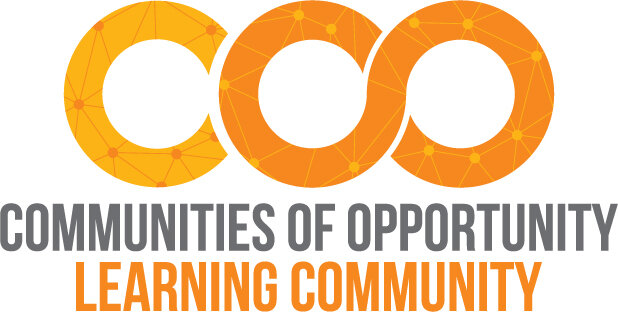This FAQ resource was created to accompany the more robust legal guidance document, Advancing Racial Equity: Legal Guidance for Advocates.
Read MoreFor many communities and nonprofits, the current landscape is confusing and alarming. In this FAQ, BMP focuses on how nonprofits could be affected by the current landscape, with an emphasis on those who serve vulnerable communities that are being targeted by many federal actions.
Read MoreJust Practice has compiled a short list of resources to help us connect, ground, fight and prepare for the years ahead.
Read MoreWith the Commercial Affordability Summit convening, COO sought to share what we learned from the pilot project, which concluded in 2022, and provide a platform for learning about additional strategies, models and programs that are currently being designed and implemented in support of an equitable and thriving small businesses environment and greater economic justice.
Read MoreDPN has released three new policy kits on empowering tenants through increasing housing supply and enshrining tenant protections in state and local law. DPN has also released a Deliberative Democracy Processes policy kit, an open resource for legislators, advocates, journalists, and citizens to learn how states can utilize citizen deliberation models to break gridlock, reduce special-interest capture, and build consensus
Read MoreA recording of the recent Public Health Communication Collaborative webinar, Structural Racism and Public Health: How to Talk to Policymakers and Community Members, is now available. Presenters shared key research findings on framing policy and public-oriented communications about structural racism—an unjust system of laws, procedures, and beliefs that sustain racial and ethnic inequality—and public health
Read MoreYour input is critical to the overall success of the Crisis Care Center Initiative approach so you are being invited to virtual planning meetings so the CCC Implementation Team can listen to your feedback. Below are five ways to get involved now:
Read MoreThe Othering & Belonging Institute (OBI) is proud to launch the Zoning Reform Tracker and share information on municipal zoning reform efforts across the United States. The Zoning Reform Tracker is meant to serve as a hub for documenting zoning reform efforts in the country. It is OBI’s belief that anti-density zoning ordinances play a powerful role not only in propagating race- and class-based exclusion, but in shaping life outcomes for children in communities, and therefore in furthering patterns of negative intergenerational stratification. Restrictive zoning is a powerful mechanism for hoarding resources, with great implications for racial residential segregation, and the former will not fundamentally change without reforming or overriding zoning regulation.
Read MoreLet’s Talk! The Urban League of Metropolitan Seattle (ULMS) is planning a community conversation with the Statewide Poverty Action Network, and looking for community members to participate in the conversation about direct cash assistance or receiving services such as TANF, SNAP, and Working Families Tax Credit (WFTC).
Read MoreSeattle Foundation and King County recently awarded grants to 18 community partners to advance systems and policy change to improve health, social, and economic outcomes in the region. This $2.8 million in funding is made through Communities of Opportunity’s Systems and Policy Change strategy.
Read MoreCommon Future & The Bento Society have partnered in support of the launch of the Library of Economic Possibility (LEP) — a new research and media platform. LEP's mission is to advance public knowledge of economic policies that may help build a thriving 21st century economy.
Read MoreTo support continuous improvement and learning for equitable contracting work COO sought to document where and how COO has been successful in creating more equitable procurement processes, particularly in the area of contracting, and what gaps continue to exist. The Equitable Contracting Report here, summarized a review of King County COO Community Service Agreements and Consultant Contract processes, best practices from the field, and themes from key informant interviews with COO community partners.
Read MoreLearn more about crafting effective messages and getting audiences with local government to meet your goals. Build relationships and reputations that facilitate generative partnerships and ways to influence public leadership and represent your community.
Read MoreCOVID-19 has redefined nearly every process and task. This workshop will look at the digital tools for communicating at various levels (team members, clients, community members, funders) that can keep us socially connected while physically distant. These tools can be power campaigns even without pandemic restrictions.
Read MoreBuilding intercommunity coalitions. How to be in solidarity with those communities under most threat, even when not your own. Starting and maintaining alliances during COVID-19. Workshop featuring guest speaker Colleen Echohawk-Hayashi.
Read MoreMore than 60 community members came together on January 9th to learn more about the Community Real Estate Stewardship Team (CREST)'s development projects and what it means to own and control land as a community. Watch the recorded presentation here.
Read MoreCommunities of Opportunity & Healthy and Safe Environments initiatives panel at the first annual Best Starts for Kids Summit: “Youth, Family and Community Led Movements for Systems Change: How young people and families work upstream to impact inequities by race and place”
Read MoreCommunities of Opportunity Resilience and Response awards will address inequities in housing, health, and economic opportunity. Grantees will receive $1.275 million to promote change in policies and systems for communities most impacted by COVID-19 in King County.
Read MoreMoving into the next phase of COO, a Policy and Systems Cohort was envisioned to ensure community experts inform and guide a set of systems and policy recommendations at the intersection of community connection, economic development, health and housing.
Read More












